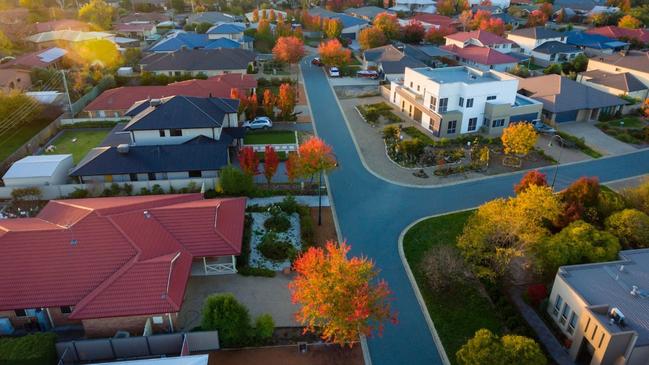Rita Panahi: Dumping stamp duty no cause for celebration
The proposal to replace stamp duty with a land tax may seem like a godsend, but it will only result in homeowners paying more in the long run, writes Rita Panahi.

Rita Panahi
Don't miss out on the headlines from Rita Panahi. Followed categories will be added to My News.
“Be careful what you wish for, lest it come true.” Homeowners and prospective buyers would do well to heed Aesop’s wise words. The proposal to replace stamp duty with a broadbased land tax may seem like a godsend but it will only result in homeowners paying more property taxes in the long run.
There was much jubilation when the Herald Sun revealed the Andrews Government was exploring a plan to “dump stamp duty in favour of a cheaper annual tax paid by homeowners”.
Victorians pay absurdly high rates of property taxes, more than any other state or territory, and stamp duty is particularly prohibitive. If you purchase a home for $800,000 you will pay about $44,000 in stamp duty. In Queensland the stamp duty is about half the figure for the same purchase price.
Stamp duty stops people from moving and its distortion of buyer behaviour is considered a productivity killer.

However, the Victorian experience of land tax is no less grim and it’s payable annually, not a one-off impost like stamp duty.
Currently owner-occupiers do not pay land tax but those who have property that is vacant, an investment, holiday home or commercial property do pay … and pay through the nose. Land tax has become a crippling expense for many with bracket creep — land tax is calculated by thresholds set in 2009 — seeing bills double and triple in a matter of years.
The Victorian government has become heavily reliant on property taxes, which now make up about 40 per cent of the state’s total tax take. Land tax bills have also increased significantly due to local councils putting higher valuations on properties to counter the imposition of the 2.5 per cent cap on rate increases.

You can be sure any proposal to drastically change the system is only going to bring more dollars into the state’s coffers, not less. The current system is inequitable, too, on a number of levels.
Firstly an individual with millions in a share portfolio does not pay an equivalent to land tax.
Secondly, someone living in a $4 million mansion pays no land tax but a nurse with a $600,000 investment property with a $500,000 bank loan will pay.
It may be more equitable to tax all homeowners regardless of how they use their property but given how land tax bills have spiked in recent years, you will end up paying more in the long term.
Rita Panahi is a Herald Sun columnist

